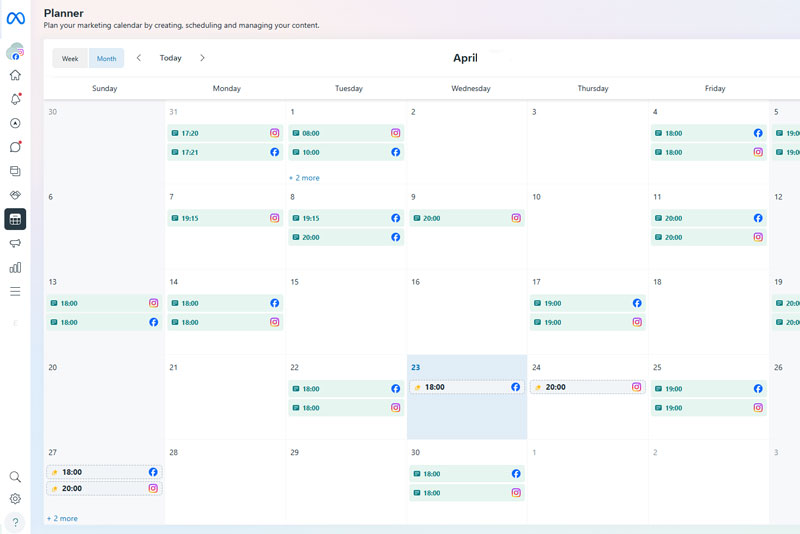Did you know that 70% of marketing initiatives fail due to a lack of strategic planning? In today’s fast-paced digital landscape, a well-defined marketing framework is not just a nice-to-have; it’s a necessity.
If you think about it, frameworks guide almost everything we do in life. The road system helps us get from A to B safely and in an orderly manner. The way you order food at McDonald’s is designed for speed and consistency. Schools follow structured curriculums to ensure learning happens in a logical way. Even how we typically eat, breakfast, lunch, dinner follows a daily framework that helps us function within society and helps hospitality companies make the most of their businesses.
These systems exist because they work. They remove guesswork, reduce chaos, and lighten the mental load so you can focus on action, not decision-making.
So why wouldn’t you apply the same logic to your marketing?
Without a structured approach, businesses often find it challenging to identify their goals, connect with their audiences, and effectively measure the outcomes of their strategies.
Based on our experience, we explore the concept of marketing frameworks and how adopting a staged approach can significantly improve your marketing success. From understanding your audience to creating compelling content and measuring results, we will break down each stage of the framework, along with actionable tips to elevate your marketing strategy.
Understanding Marketing Frameworks
When we talk about marketing frameworks, we’re referring to a systematic approach designed to organise your marketing efforts. Just like a blueprint guides the construction of a building, a marketing framework serves as a roadmap to guide your strategies and tactics.
The Importance of a Structured Approach
A structured marketing framework can help you:
- Clarify Your Goals: Setting clear and measurable objectives ensures that everyone on your team understands what success looks like.
- Align Your Team: A unified framework keeps everyone on the same page, reducing confusion and enhancing collaboration.
- Improve Measurement: By establishing key performance indicators (KPIs) within your framework, you can track progress and make informed adjustments along the way.
The Staged Approach to a Marketing Framework
A staged approach divides the marketing process into distinct phases. Each stage builds upon the previous one, ensuring a cohesive strategy that evolves over time. Let’s break down the key stages of a successful marketing framework:
1. Research and Analysis
Understanding your audience and the competitive landscape is crucial. In this phase, you should:
- Conduct Market Research: Use surveys, interviews, and focus groups to gather insights about your target audience.
- Analyse Competitors: Identify what strategies competitors are using and how you can differentiate your brand.

2. Strategy Development
Based on your research, develop a marketing strategy that aligns with your business goals. Key components include:
- Defining Your Unique Value Proposition (UVP): What makes your product or service stand out?
- Setting SMART Goals: Specific, Measurable, Achievable, Relevant, and Time-bound goals will guide your actions.
3. Planning and Implementation
Transform your strategy into a detailed action plan. This stage involves:
- Creating a Content Calendar: Plan out your content strategy to ensure a consistent flow of materials to engage your audience.
- Assigning Roles and Responsibilities: Clearly outline who is responsible for each aspect of the marketing plan.

4. Execution
It’s time to launch your marketing campaigns. Here are key points to keep in mind:
- Multi-Channel Approach: Don’t limit your outreach to just one channel. Utilise social media, email marketing, SEO, and more.
- Test and Optimise: Experiment with different formats and messages, then analyse the results to refine your approach.
5. Measurement and Evaluation
After your campaigns have launched, measuring their effectiveness is essential. Focus on:
- Tracking KPIs: Monitor key metrics like website traffic, conversion rates, and engagement levels.
- Regular Reviews: Schedule check-ins to assess what’s working and what’s not, making necessary changes to your strategy.
Common Mistakes to Avoid
When building a marketing framework, here are some pitfalls to steer clear of:
- Neglecting Audience Personas: Failing to develop detailed audience personas can lead to misguided efforts. Tailoring your message to who you’re speaking to is just as important as what you’re saying.
- Overlooking Location Relevance: Whether you’re a local business serving a tight-knit community or a national brand with a broad reach, understanding your geographic context is key. A one-size-fits-all approach rarely works, location shapes language, tone, platforms, and even timing.
- Rushing the Research Phase: Taking shortcuts during research can lead to poorly informed strategies and wasted resources.
- Ignoring Feedback: Always listen to consumer insights and adapt your approach accordingly. Frameworks aren’t static, they should evolve with your audience.
A Framework for Success: Real-World Examples
To make this more tangible, let’s explore some companies that have successfully implemented structured marketing frameworks:
1. Airbnb: The company’s early use of targeted email campaigns, complemented by user-generated content, showcased the importance of community engagement and market research.
2. Nike: Leveraging social media for storytelling allows Nike to connect emotionally with consumers, demonstrating how a strong brand narrative can enhance brand loyalty.
So Where Do You Go From Here?
Implementing a marketing framework can be a dynamic process that builds upon itself, enhancing your overall marketing effectiveness and driving results.
- Start by investing time in research and analysis, as a solid foundation is critical for long-term success.
- As you define your strategy, always keep your audience at the forefront, creating value-driven messaging that resonates.
- Remember, measurement is just as important as execution, so set aside time to review your progress regularly.
By following these structured steps in your marketing framework, you can navigate the complexities of the marketing landscape with confidence. To optimise your strategy further, consider contacting us for a free consultation. Remember, the key to great marketing is consistency and adaptability, so begin your transformational journey today!


